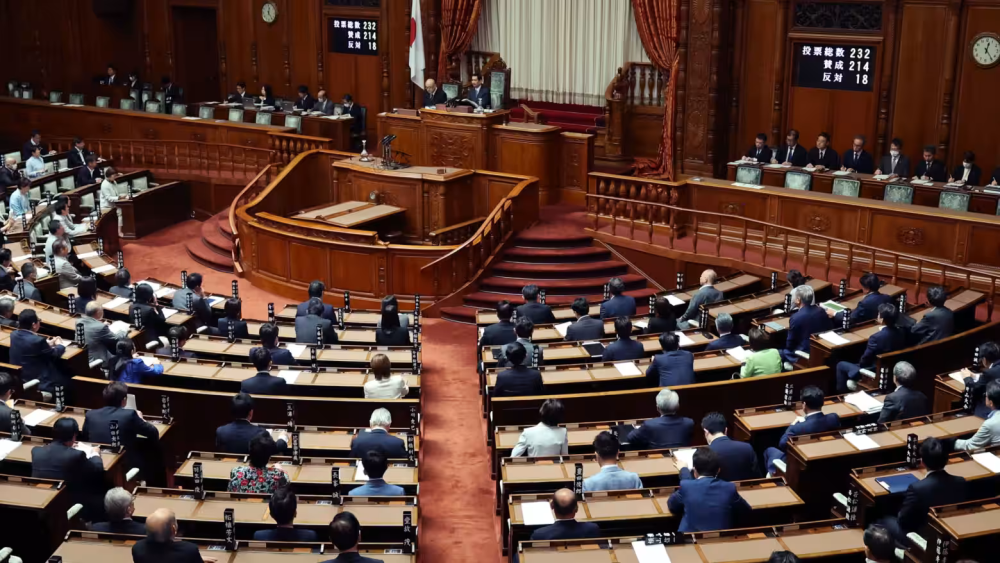
Nhật Bản, Singapore, Ấn Độ và ASEAN đang dẫn đầu thế giới trong việc cân bằng giữa đổi mới AI và quy định
-
Nhật Bản vừa thông qua AI Promotion Act, đặt mục tiêu trở thành quốc gia thân thiện với AI nhất thế giới. AI được kỳ vọng giúp nâng cao mức sống, tăng năng suất và giải quyết bài toán già hóa dân số chiếm 41% lực lượng lao động.
-
AI có tiềm năng tăng thêm 2,5 nghìn tỷ USD cho nền kinh tế châu Á trong thập kỷ tới, đồng thời giúp giải quyết các vấn đề xã hội như nông nghiệp, y tế và sáng tạo nội dung.
-
Nhật Bản tập trung vào việc thúc đẩy nghiên cứu AI, phát triển nguồn nhân lực và áp dụng mô hình quản trị linh hoạt, dựa trên bằng chứng để vừa khuyến khích đầu tư, vừa kiểm soát rủi ro.
-
Singapore áp dụng phương pháp “race to the top”, xây dựng khung quản trị AI thay vì siết chặt luật pháp. Nổi bật là các dự án hợp tác công tư như Project SEALD và mô hình ngôn ngữ SEA-LION, giúp AI phù hợp hơn với ngữ cảnh văn hóa và ngôn ngữ Đông Nam Á.
-
Ấn Độ áp dụng mô hình tự điều chỉnh, khuyến khích startup và nhà nghiên cứu phát triển các mô hình AI nội địa, giải quyết các bài toán đặc thù của quốc gia.
-
ASEAN phát triển AI Governance and Ethics, hướng tới đồng bộ hóa quy định giữa các quốc gia nhưng vẫn cho phép tùy chỉnh theo bối cảnh địa phương.
-
Hiroshima AI Process do Nhật Bản khởi xướng tạo ra bộ nguyên tắc tình nguyện giúp các quốc gia và doanh nghiệp phát triển AI an toàn, có trách nhiệm.
-
AI là công nghệ xuyên biên giới, nên sự đồng bộ giữa các quốc gia giúp startup dễ dàng mở rộng quốc tế mà không vướng vào rào cản pháp lý khác biệt.
-
Google nhấn mạnh AI quá quan trọng để không được điều chỉnh, và càng quan trọng để được điều chỉnh đúng cách. Châu Á đang trở thành hình mẫu cân bằng giữa đổi mới và quản lý AI hiệu quả.
📌 Nhật Bản, Singapore, Ấn Độ và ASEAN đang dẫn đầu thế giới trong việc điều chỉnh AI một cách cân bằng, tạo ra cơ hội tăng trưởng thêm 2,5 nghìn tỷ USD cho kinh tế châu Á. Từ mô hình SEA-LION của Singapore đến AI Promotion Act của Nhật, khu vực này đang chứng minh rằng AI có thể vừa đổi mới vừa an toàn, phục vụ toàn xã hội.
https://asia.nikkei.com/Opinion/Asian-countries-are-pioneers-in-balancing-AI-regulation-and-innovation2
https://zelojapan.com/en/lawsquare/56899
-
Ngày 28/5/2025, Nhật Bản thông qua AI Promotion Act, đạo luật AI đầu tiên của quốc gia, tập trung vào thúc đẩy đổi mới thay vì áp đặt chế tài.
-
Khác với AI Act của EU (có khung chế tài và quản lý rủi ro nghiêm ngặt), Nhật Bản chọn mô hình mềm, thiên về giám sát, hướng dẫn và hỗ trợ doanh nghiệp phát triển AI.
-
Động lực ra đời đạo luật đến từ hai yếu tố:
-
Đầu tư AI tụt hậu (700 triệu USD năm 2023, đứng thứ 12 thế giới) so với Mỹ (67,2 tỷ USD) và Trung Quốc.
-
Công chúng lo ngại: 77% người dân muốn AI được quản lý, chỉ 13% tin rằng luật hiện hành đủ an toàn.
-
-
Mục tiêu của đạo luật là biến Nhật thành quốc gia dễ phát triển và sử dụng AI nhất thế giới, đồng thời xây dựng mô hình quản trị mẫu mực cho toàn cầu.
-
Nguyên tắc cốt lõi (Article 3):
-
Đảm bảo năng lực R&D trong nước.
-
Thúc đẩy AI toàn diện từ nghiên cứu cơ bản đến ứng dụng.
-
Minh bạch, phòng chống rò rỉ dữ liệu, lạm dụng AI, vi phạm bản quyền.
-
Hợp tác quốc tế, cân bằng đổi mới và quản lý rủi ro.
-
-
Cơ chế chính:
-
Thành lập AI Strategy Headquarters (AI-SHQ) do Thủ tướng đứng đầu.
-
Soạn thảo AI Basic Plan với định hướng trung và dài hạn.
-
Hỗ trợ hạ tầng như HPC, trung tâm dữ liệu, tập dữ liệu chất lượng cao.
-
Đào tạo nhân lực AI, nâng cao hiểu biết AI trong toàn xã hội.
-
Phối hợp quốc tế, ban hành hướng dẫn về lọc nội dung, minh bạch mô hình và dữ liệu đào tạo.
-
-
Tác động tới doanh nghiệp:
-
Không áp đặt hình phạt nhưng có “nghĩa vụ hợp tác” (Article 7) với các nhà phát triển và ứng dụng AI.
-
Chính phủ có thể điều tra, khuyến nghị sửa chữa khi phát hiện rủi ro hoặc lạm dụng AI.
-
Doanh nghiệp cần sẵn sàng cho các yêu cầu minh bạch, đánh giá rủi ro, và tuân thủ hướng dẫn sắp được ban hành.
-
-
Trong vòng 3 tháng, chính phủ sẽ triển khai AI-SHQ và công bố AI Basic Plan đầu tiên. Các doanh nghiệp nên theo dõi sát để cập nhật chính sách và điều chỉnh chiến lược AI toàn cầu.
Asian countries are pioneers in balancing AI regulation and innovation

Thảo luận
Follow Us
Tin phổ biến



